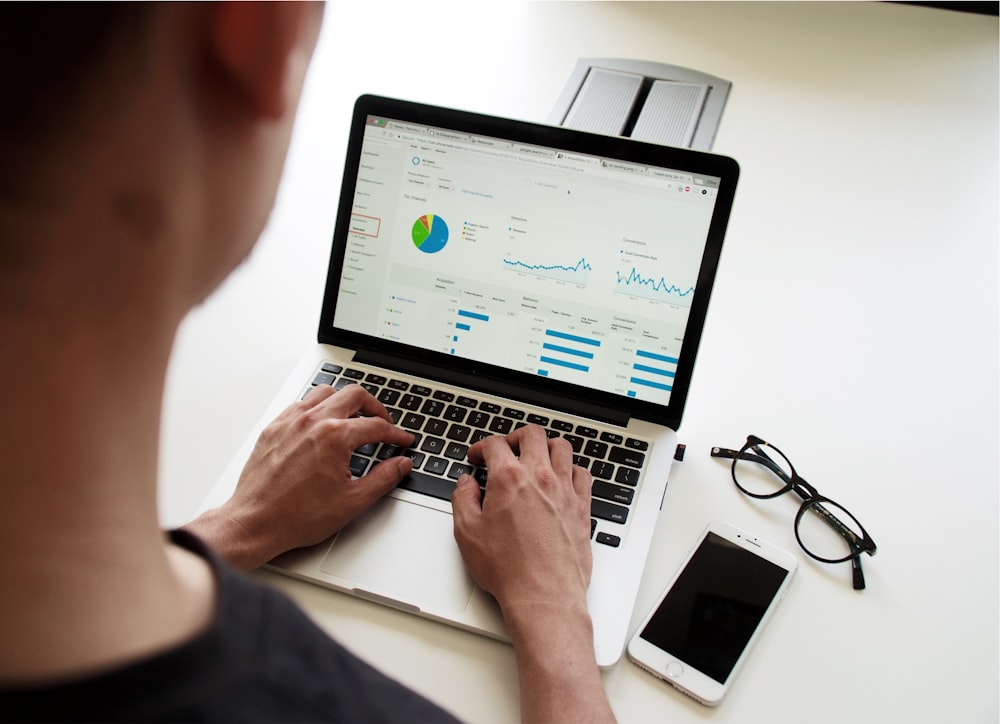Leveraging Social Media Analytics for Valuable Customer Insights
Amidst our digitally interconnected world, social media platforms have transcended mere spaces for sharing memes and staying connected with friends. They’ve metamorphosed into potent tools for businesses, enabling them to grasp their customers’ intricacies, engage directly with them, and extract invaluable insights into their preferences, behaviors, and sentiments. This evolution owes much to the emergence of social media analytics—a discipline employing advanced algorithms and techniques to sift through the vast troves of social media interactions for meaningful data.
Social media analytics encompasses a wide range of processes, including data collection, analysis, interpretation, and daily report. By leveraging these tools effectively, businesses can unlock a treasure trove of information about their target audience, competitors, industry trends, and more.
Here’s How Businesses Can Harness the Power of Social Media Analytics to Gain Valuable Customer Insights
Monitoring Brand Mentions: Social media analytics allows businesses to track mentions of their brand across various platforms in real time. By monitoring brand mentions, businesses can gauge their brand’s reputation, identify emerging trends, and address any issues or concerns promptly. This information can be invaluable for maintaining brand image and customer satisfaction.
Understanding Customer Sentiment: Analyzing the sentiment of social media conversations related to a brand or product can provide valuable insights into how customers perceive it. By categorizing mentions as positive, negative, or neutral, businesses can identify areas for improvement, capitalize on positive feedback, and address negative sentiment before it escalates. Additionally, integrating methods to calculate NPS (Net Promoter Score) can offer a quantitative measure of customer satisfaction and loyalty, enhancing the depth of insights gained from sentiment analysis.
Identifying Influencers and Advocates: Social media analytics can help businesses identify influencers and brand advocates within their target audience. By analyzing engagement metrics such as reach, engagement rate, and follower demographics, businesses can identify key individuals who have the potential to amplify their message and drive brand awareness.
Tracking Competitor Activity: Keeping tabs on competitor activity is essential for staying ahead in today’s competitive landscape. Social media analytics enables businesses to monitor competitors’ social media presence, content strategies, and audience engagement metrics. By benchmarking against competitors, businesses can identify areas of strength and weakness and fine-tune their own strategies accordingly.
Informing Product Development: Social media analytics can provide valuable insights into customer preferences, pain points, and emerging trends. By analyzing conversations around specific topics or keywords related to their industry, businesses can gather feedback and ideas for product development, innovation, and improvement.
Personalizing Marketing Campaigns: By analyzing social media data, businesses can segment their audience based on demographics, interests, and behavior patterns. This allows for the creation of highly targeted and personalized internal marketing campaigns that resonate with specific audience segments, leading to higher engagement and conversion rates.
Measuring Campaign Performance: Social media analytics tools provide businesses with robust metrics and KPIs to measure the performance of their marketing campaigns. From reach and engagement to conversion and ROI, businesses can track key metrics in real-time and make data-driven decisions to optimize their strategies for maximum impact.
FAQs
1. What is social media analytics, and why is it important for businesses?
Social media analytics is the analysis of data from social media platforms to understand customer behavior and sentiments. It’s important for businesses to improve marketing strategies, understand audience preferences, and stay competitive.
2. How do businesses collect data for social media analytics?
Businesses collect data using social media monitoring tools, APIs provided by platforms, and third-party data providers.
3. What are some common metrics used in social media analytics?
Common metrics include reach, engagement rate, CTR, conversion rate, sentiment analysis, follower growth, and SOV.
4. How can businesses ensure the accuracy of social media analytics data?
They can use reputable analytics tools, verify data sources, and establish clear measurement criteria.
Conclusion
Social media analytics has emerged as a powerful tool for businesses to gain valuable insights into their customers, competitors, and industry landscape. By leveraging the wealth of data available on social media platforms, businesses can make informed decisions, drive strategic initiatives, and ultimately, enhance customer satisfaction and loyalty. In today’s fast-paced digital world, mastering social media analytics is no longer just an option—it’s a necessity for staying competitive and thriving in the market.











